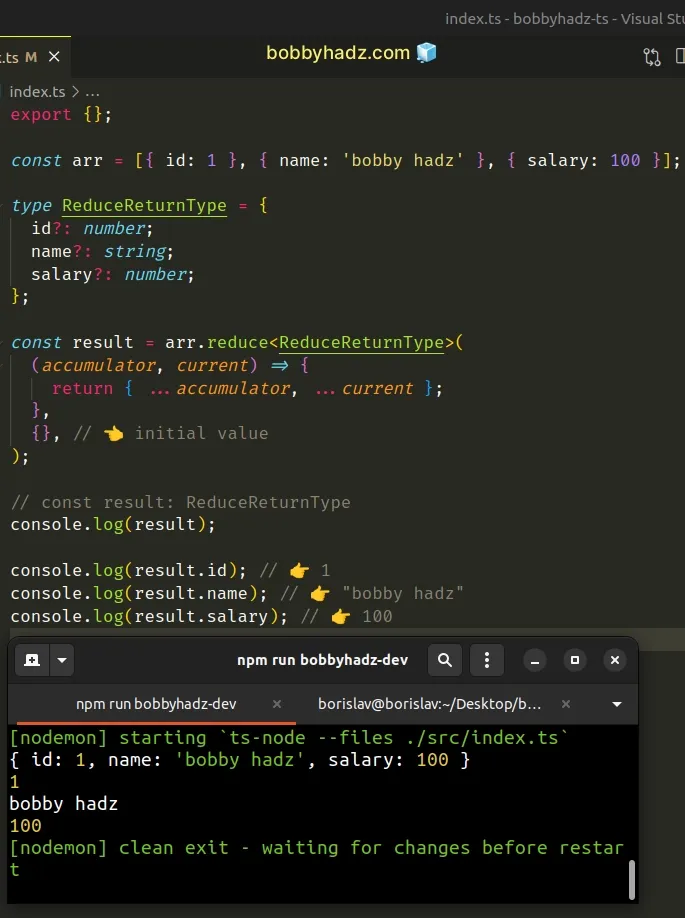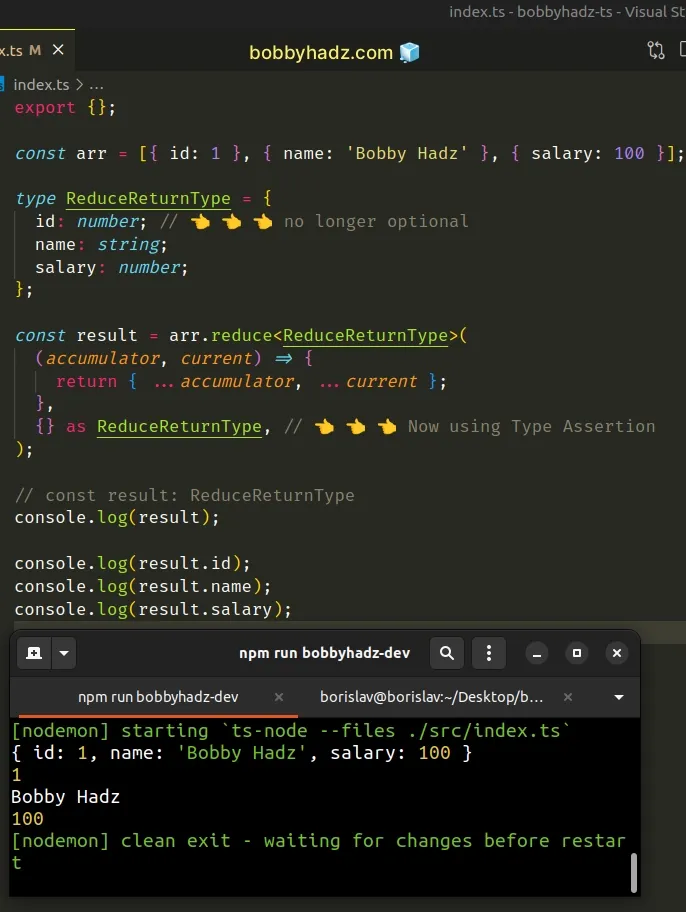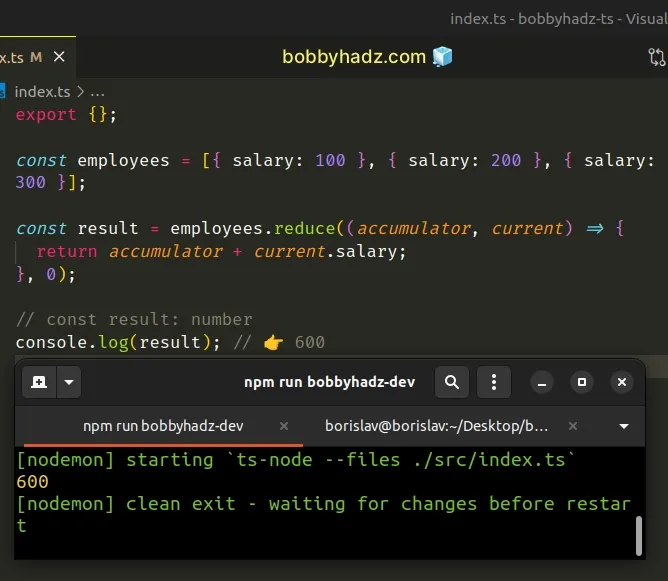How to Type the reduce() method in TypeScript
Last updated: Feb 27, 2024
Reading time·3 min

# Type the reduce() method in TypeScript
Use a generic to type the reduce() method in TypeScript. The generic is used
to specify the type of the return and the initial values of the reduce()
method.
const arr = [{ id: 1 }, { name: 'bobby hadz' }, { salary: 100 }]; type ReduceReturnType = { id?: number; name?: string; salary?: number; }; const result = arr.reduce<ReduceReturnType>( (accumulator, current) => { return { ...accumulator, ...current }; }, {}, // 👈️ initial value ); // const result: ReduceReturnType console.log(result); // 👉️ {id: 1, name: 'bobby hadz', salary: 100} console.log(result.id); // 👉️ 1 console.log(result.name); // 👉️ "bobby hadz" console.log(result.salary); // 👉️ 100

We used a generic to specify the type of
the initial and return values of the Array.reduce() method.
The type of the result variable is ReduceReturnType in the example.
We marked the properties in ReduceReturnType as
optional
to satisfy the compiler because the initial value we passed to the reduce()
method is an empty object and isn't compatible with ReduceReturnType.
# Type the reduce() method using a type assertion
You can also use a type assertion, especially if the type of the return value is different than the type of the initial value.
const arr = [{ id: 1 }, { name: 'Bobby Hadz' }, { salary: 100 }]; type ReduceReturnType = { id: number; // 👈️ 👈️ 👈️ no longer optional name: string; salary: number; }; const result = arr.reduce<ReduceReturnType>( (accumulator, current) => { return { ...accumulator, ...current }; }, {} as ReduceReturnType, // 👈️ 👈️ 👈️ Now using Type Assertion ); // const result: ReduceReturnType console.log(result); // 👉️ {id: 1, name: 'Bobby Hadz', salary: 100} console.log(result.id); // 👉️ 1 console.log(result.name); // 👉️ "Bobby Hadz" console.log(result.salary); // 👉️ 100

The function we passed to the reduce() method gets called for each element in the array.
The reduce() method returns the accumulated result.
accumulator variable.reduce(function(accumulator, current, index), initial_value)
The value we return from the callback function gets passed as the accumulator
on the next iteration.
# TypeScript might be able to infer the type of reduce()
TypeScript might be able to infer the type of the reduce() method and its
return type based on the type
of your initial value.
const employees = [{ salary: 100 }, { salary: 200 }, { salary: 300 }]; const result = employees.reduce((accumulator, current) => { return accumulator + current.salary; }, 0); // const result: number console.log(result); // 👉️ 600

We passed a number as the initial value to the reduce() method and returned a
number from the method, so TypeScript is able to infer the correct type.
# Another example of typing the reduce() method in TypeScript
Let's look at another example of typing the reduce() method.
const arr = ['a', 'b', 'c']; type ReduceReturnType = Record<string, string>; const result = arr.reduce<ReduceReturnType>( (accumulator, current) => { return { ...accumulator, [current]: current }; }, {}, // 👈️ initial value ); // const result: ReduceReturnType console.log(result); // 👉️ {a: 'a', b: 'b', c: 'c'}
We used Record<string, string> for the type of the accumulator, initial
value and return value of the reduce() method.
The Record<Keys, Type> type is a
utility type
and is used to construct an object whose keys and values are of a specific type.
string.In other words, the accumulator variable in the example is an object that
contains string keys and values.
The current variable stores the array element of the current iteration.
# Additional Resources
You can learn more about the related topics by checking out the following tutorials:

